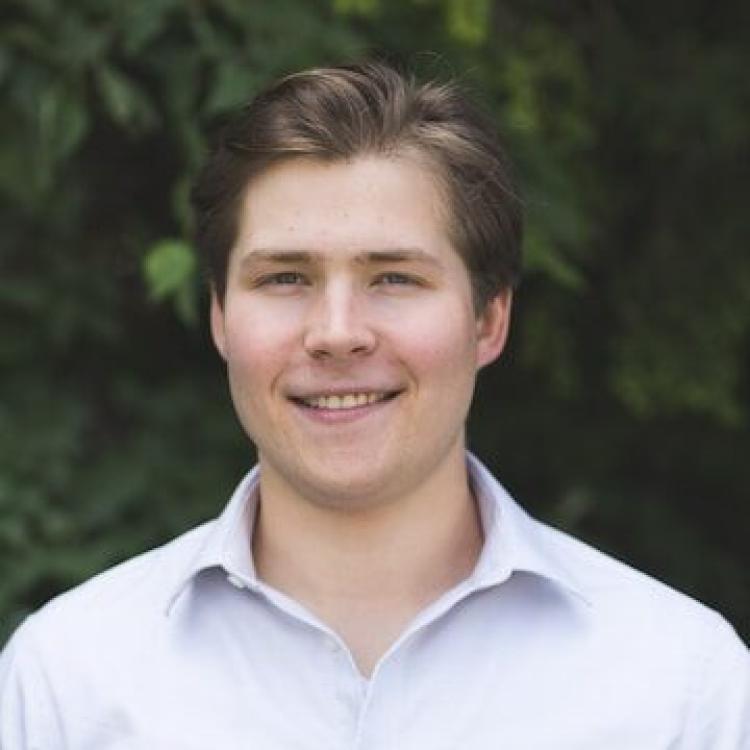Geography student wins geospatial intelligence scholarship
Christopher Picard of CU Boulder is one of 21 students nationwide to win support from United States Geospatial Intelligence Foundation
Christopher Picard, a graduate student in geography at the University of Colorado Boulder, is one of 21 students nationwide to win scholarships this year from the United States Geospatial Intelligence Foundation (USGIF), the foundation announced recently.
The USGIF’s 2023 scholarship awardees, who are studying geospatial intelligence and related fields, will receive a total of $125,000, raised from donations.
Ronda Schrenk, USGIF CEO, expressed her gratitude for the funding: “The support our community has shown for the scholarship program this year has been truly inspiring for us at the Foundation. We extend our heartfelt thanks to all the organizational and individual donors who have enabled USGIF to maintain and expand this crucial program.”
Picard, who is pursuing a master's degree in geography from CU Boulder, is a recent graduate of Dartmouth College, where he received a BA in environmental Earth sciences.

Chris Picard
While an undergraduate, Picard had an internship at the U.S. National Ice Center, where he was introduced to remote sensing of the cryosphere and learned about the importance of geospatial research to national security.
That experience led Picard to apply remote sensing and other computational techniques to the study of current and future changes in Earth's high-latitude regions.
Picard said he was honored to win a 2023 graduate scholarship. “I want to thank the USGIF for supporting young geospatial researchers, as this financial assistance and connection to a broader community is massively impactful for students entering the field,” he said, adding:
“Financially, this scholarship is significant to me because it will provide important funding that will help support me during my graduate studies. In addition to financial assistance, I am looking forward to engaging with this new community in graduate school and during my career.”
The 21 awardees were selected by USGIF’s scholarship committee, a group of volunteers from the geospatial intelligence community who are dedicated to supporting the next generation of researchers. The recipients represent diverse academic backgrounds and personal experiences that are crucial to advancing the field, the foundation said.
The 2023 cohort’s expertise covers a broad range of geospatial intelligence enterprises, including:
- Developing a deep-learning model to detect building damage after a natural disaster
- Mapping sentiments and understanding bias in armed-conflict data
- Monitoring sea ice in the Arctic region for national security purposes
- Advancing landmine detection with remote-sensing and machine-learning techniques
While the awardees are studying at universities across the country, representing 20 different schools, they all share a driving desire to use geospatial intelligence to address critical national security concerns, solve complex global issues and serve their communities, the foundation said.
USGIF has awarded more than $1.7 million to students dedicated to advancing the geospatial intelligence tradecraft since the program started in 2004. Past awardees have gone on to serve as leaders at geospatial intelligence government agencies and companies, innovate at startups and small businesses and become professors.
“The impact of past USGIF scholarship awardees … never ceases to amaze me,” said USGIF Director of Education and Professional Development Christine Devine. “Watching them grow into leaders in the field and start to impact the world as they initially described in their applications is what the whole scholarship program is about.”
In addition to sponsorship from organizations, USGIF receives donations from individual geospatial intelligence community members committed to growing the future of the field.
Schrenk highlighted the significance of the scholarship program, stating: “By means of the scholarship program, USGIF can provide support to the most exceptional students aspiring to enter the geospatial intelligence field. This year, we received an unprecedented number of applications, and I am confident that the recipients will bring immeasurable value to our community.”
Did you enjoy this article? Subscribe to our newsletter. Passionate about geography? Show your support.

